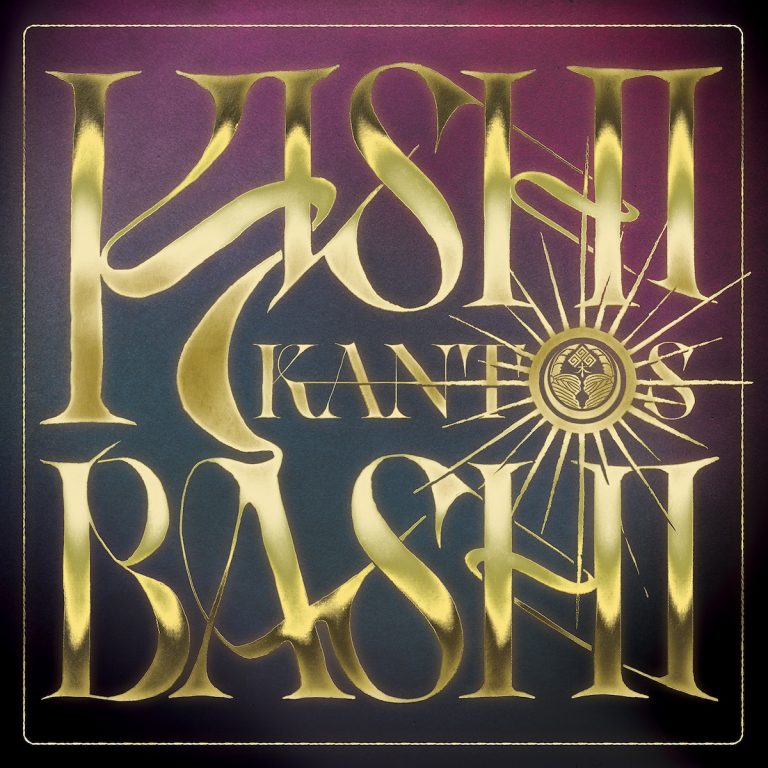Kishi Bashi has always reckoned with heady and complex concepts on his records. His last album, 2019’s Omoiyari, stemmed from reflections on the mass incarceration of Japanese-Americans during World War II, while 2014’s Lighght took inspiration from minimalist poet Aram Saroyan and was an exploration of defying convention. But at the heart of all of Kaoru Ishibashi’s records was love. Songs borne of the joy of giddy new infatuation, longing from afar, and heartbreak that echoed deeply in the chest. It was the invisible string tying together all the studious reference points with the delightful hooks, binding his classical musical training with adoration for a host of other influences, from pop to 70s prog to flashy electronica.
Ishibashi’s new record, Kantos, is no different in this regard. Its inspirations range from the cult-classic sci-fi novel series Hyperion Cantos, the writings of 18th century enlightenment philosopher Immanuel Kant, and mythological stories from the island of Crete. Its title swirls all those sources together, as well as pointing towards the Spanish word “canto” meaning “I sing”. A self-described “party album”, it juxtaposes the good times with also being a stand against the fascinating but terrifying surge of AI and how that affects creativity and innovation. At the record’s heart though, is love through and through. Its first half features a sweet tale of trying to impress someone through youthful nervousness, and declarations that “they will never tear us apart”. After the opening track skips into a technicolor world of electric guitar and squelchy synths, Ishibashi’s chopped up voice incants the thread of the album’s lyrical focus: “I have feelings”.
While the lyrical focus might be familiar, the musical backdrop of Kantos is not the usual fare. Self-produced, Ishibashi plunges into new territory across the album’s 12 tracks, putting the focus on different and sometimes curious elements. A blaring sax (courtesy of Augie Bello) takes the lead on “Lilliputian Chop”, he goes full 80s city pop on closing track “Tokyo Love Story (Love Story Wa Totsuzen Ni)”, and even tries his hand at rapping on “Make Believe”. The most prominent feature is the electric guitar that crops up frequently, giving Kantos the feel of an epic rock opera album that falls short on the runtime. Numerous interludes and short instrumental tracks are peppered across the album, but instead of acting like preludes or scene changes, they hit pause on the record’s momentum.
The main reason Kantos fumbles though is because Ishibashi set the bar so high with his previous work. All of his albums before this were exemplary in one way or another, and there certainly are flashes of his skill here: “Icarus IV” might essentially be a sanded down Resistance-era Muse track, but it manages to transcend itself and serves up one of Ishibashi’s finest choruses to date; come the final minute of “Late Night Comic” where he modulates up a key, the harmonic beauty Ishibashi seems to dish out so easily is on full display; and the instrumental outro to “Analógico Brasil” is feverishly wonderful, managing to fuse together Celtic, classical, and Brazilian jazz influences with delightful ease. These are the moments you keep coming back for on Kantos, the moments amidst the theatrics that feel connected to an honest to goodness joy of making music.
It does feel unfortunate to tackle Ishibashi for trying new things, as innovation has always been an exciting part of his music. But there’s just that bit too much that sticks out like a sore thumb. Kudos to him for giving rapping a shot on “Make Believe” but unsurprisingly he has little flow or heft in his bars; “be the bard: notes and rhymes,” he recites, but he’s not got any of the charm to fulfill this role. (Linqua Franqa drops by for the final verse, and fares better, but it’s far from any kind of fire she’s spitting.) With its soul, gospel, and dancehouse influences, the sax-led “Lilliputian Chop” is a curious beast. It’s certainly impressionable, but it sounds more akin to a “Careless Whisper”-like meme than a track to be given serious thought to. Elsewhere “Chiba Funk” boasts some funky aquatic guitar riffs and elastic bass, but it feels like a set up for an epic tale that never quite comes to life, while “Colorful State” leans into the rock opera style with it’s thundering drums, camp electric guitar, and arena-ready chorus, but seems missing a heart in all the noise and fanfare.
The aforementioned chorus of “Icarus IV” speaks a little poignantly of what Ishibashi goes for here. “I want to fly a little higher, a little lighter, I want to run away,” he sings, and that feels very much like the aim of Kantos. He’s trying to aim higher and fire himself upwards with new weapons, gearing for a sort of free abandon. Unlike the titular character, it doesn’t so much feel like Ishibashi has flown too close to the sun here. While there are moments where he undeniably soars, the overall demise feels down to a simple trajectory problem. The calculations are off, and as a consequence Ishibashi has found himself tangled in his own creation, being swept up by the wind, and dropping the grace he once emanated aplenty. To paraphrase another famous figure with dubious aviation credits, Ishibashi should be flying, but instead it feels like he’s falling with style.

